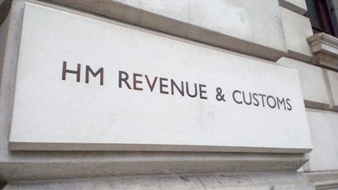シンガポールへの事業移転について

October, 2020
海外事業展開をする際の国の選択として、その国の税制、規制、インフラや経済の安定性など様々な要素が考慮されます。近年、オンショアやミッドショアと呼ばれる、いわゆる「法人税ゼロのオフショア」とは違う国々が注目を浴びるようになってきました。その理由はパナマペーパーや他の情報リークなどによるオフショア地域への攻撃の影響が強いとされます。また、世界中の銀行がオフショア法人に対する口座開設を厳しく制限し始めたことも理由の一つです。
(シンガポールや香港などは「ミッドショア」に当たります)
特にAEOI(税的自動情報交換制度)の開始やオフショア地域における経済実態要求の施行後は、オンショアやミッドショアに事業を移転してくる例が多くなってきています。
(オンショアとは、一般的に自国や高税国のことを指します)
- シンガポールはビジネスフレンドリーな国としての定評があります。世界銀行の2019年の発表によれば、シンガポールはビジネスが行いやすい国として2番目にランクインしました。比べて香港は4番目です。
- シンガポールには、既存または新規事業に対して数多くの税優遇措置や税控除があります。
- シンガポールは二重課税条約を多くの国と結んでおり、税制的に非常に優れた国として有名です。
シンガポールへの事業移転(リロケーション)をされる際に必要な検討は、
- 資産:有形または無形資産をどのようにシンガポールへ移転するか
- 銀行口座:まず、シンガポールの銀行に口座開設が可能かを確認が必要
- 顧客や市場との関係:シンガポールにおける事業開始及び、新しいブランディングやイメージについて顧客や市場との間に起こりえる様々な問題の考慮が必要
- サプライヤーとの関係:上記に同じく、サプライヤーとの関係についても考慮が必要
- 契約書:既存事業活動において、契約書が新規にシンガポール法人で締結または契約移転について
- 雇用、人事:シンガポールへ人事異動の必要の有無について
- オフィス:バーチャルオフィスの利用または物理的なオフィスの必要性について
- 株主、オーナーシップの構成:シンガポールへの移動・移転が必要になるか否かについての検討
シンガポールに事業を移転(リロケーション)その方法として主に以下の3つがあります、
- シンガポールに持ち株会社(ホールディング会社)の設立
ある国で設立された既存事業法人Aに対して、親会社となるホールディング会社をシンガポールにて設立することが可能です。また、法人Aの代わりとなる事業法人をシンガポールで新た設立し、事業を既存法人Aから新規シンガポール法人に移すことも可能です。既存法人Aや新規事業シンガポール法人などのすべての事業法人を、シンガポールのホールディング会社の傘下に置くことも可能です。
シンガポールにて設立される事業法人では、駐在社員や雇用する外国人に対して労働ビザを発行することもできます。
- シンガポールに子会社を設立
ある国で設立された事業法人をそのまま残し、シンガポールに新しく子会社を設立することが可能です。子会社は事業法人としてシンガポールに銀行口座を開設することができます。シンガポールでは配当に対して源泉課税はなく、またキャピタルゲイン課税も発生しません。そういう意味でもシンガポールに事業子会社を持つことは税的にも有利で、また株主にとっても投資効果を最大限に活かすことができます。
(節税の点についてはタックスヘイブン対策税制などにご留意ください)
- 外国籍法人からシンガポール法人への国籍変更
2017年の会社法改正により、外国籍法人をそのままシンガポール法人へ国籍変更をすることが認められました。これにより、今までは外国籍法人がシンガポールで事業を行う場合にはシンガポールで子会社の設立などが行われていましたが、それが不要となり、企業の歴史やブランドを引き続きそのままシンガポールに移すことが可能になりました。変更には条件があります。それをクリアーした外国法人は、明確な手続き方法にてスムースに変更を行うことが可能です。
過去に発行した弊社のニュースレターにてシンガポールへの法人国籍変更について詳しく取り上げております。詳細は過去のニュースレターをご参考、またはお気軽に日本語で弊社までお問い合わせください。
ゼットランドではシンガポールに支店を持ち、シンガポール法人の設立や会計、ノミニーサービスの提供、または必要ビザの取得サポートなどさまざまなサービスを展開しております。お問い合わせは日本語で intray@zetland.biz まで.
Relocating Your Business to Singapore
Taxes, regulations, infrastructure, economic stability and reputation or perception are some of the main factors to consider when choosing a domicile to setup your business. Onshore or mid-shore companies are gaining more interest as offshore jurisdictions are getting more scrutiny after the impact of the Panama papers and other data leaks. Banks in general are making it more difficult for offshore companies to open accounts.
It is clear from many sources that the interest in onshore or mid-shore structures have risen in the past few years; and after the implementation of the automatic exchange of information and economic substance requirements on offshore jurisdictions.
- Singapore remains one of the most business-friendly countries in the world; in the World Bank's 2019 rankings for ease of doing business, Singapore took second place while Hong Kong was placed fourth.
- Singapore grants generous tax incentives and tax breaks for new and existing businesses.
- Singapore is one of the most favourable tax jurisdiction in the world with generous tax exemptions and incentives; and provides a vast network of Double Tax Avoidance treaties.
Factors to consider when evaluating and planning for the relocation:
- Assets: Evaluate the tangible and intangible assets of your business and examine the process by which you can transfer them to Singapore.
- Banking relationships: Establish new banking relationships in Singapore and then transfer your banking assets.
- Client relationships: You will have to introduce your clients to your new business entity and any branding issues that may arise.
- Supplier relationships: Likewise, you will have to introduce your new business entity to your vendors and suppliers.
- Contracts: Check whether contracts be reassigned to the Singapore company.
- Staff: Any staff relocation required.
- Office: Office or virtual office
- Shareholdings: Any shareholdings in public or private companies may have to be moved over, depending on the type of structure to be set up.
Possible business structures:
- Establish a Singapore holding company
One can establish a new Singapore company that will be the holding company of your existing company (A). You can setup another Singapore company that will eventually become the operating company for your business in the long term after the transfer has been fully executed, and transfer of business activities such as supplier relationships, customer contracts, assets, etc from A to the Singapore operating company. Thereafter, all the shares of the operating company will be owned by the holding company.
The Singapore operating company will also be able to sponsor working visas for employees who will be relocated to work here.
- Establish a Singapore subsidiary company
You can retain your company, and establish a Singapore company as its subsidiary. The subsidiary will be the operating company, have its bank account in Singapore. There is no withholding tax on dividends and capital gains. Using a Singapore operating company would be more tax efficient, and ensures the shareholders benefit more from their investments.
- Inward re-domicilation to Singapore
Under the Companies (Amendment) Act 2017, foreign corporate entities are allowed to transfer their registration to Singapore instead of setting up subsidiaries (e.g. foreign corporate entities that may want to relocate their regional and worldwide headquarters to Singapore and still retain their corporate history and branding. There are minimum requirements and solvency criteria that must be met by the company. There are specified well-defined procedures for such a transfer.
Zetland provides a one-stop solution, who can partner with you to plan and relocate your business.
For more information, you may contact Ms Su Lee Chan, Director of Zetland Singapore at suleec@zetland.biz or +65 6557 2071












